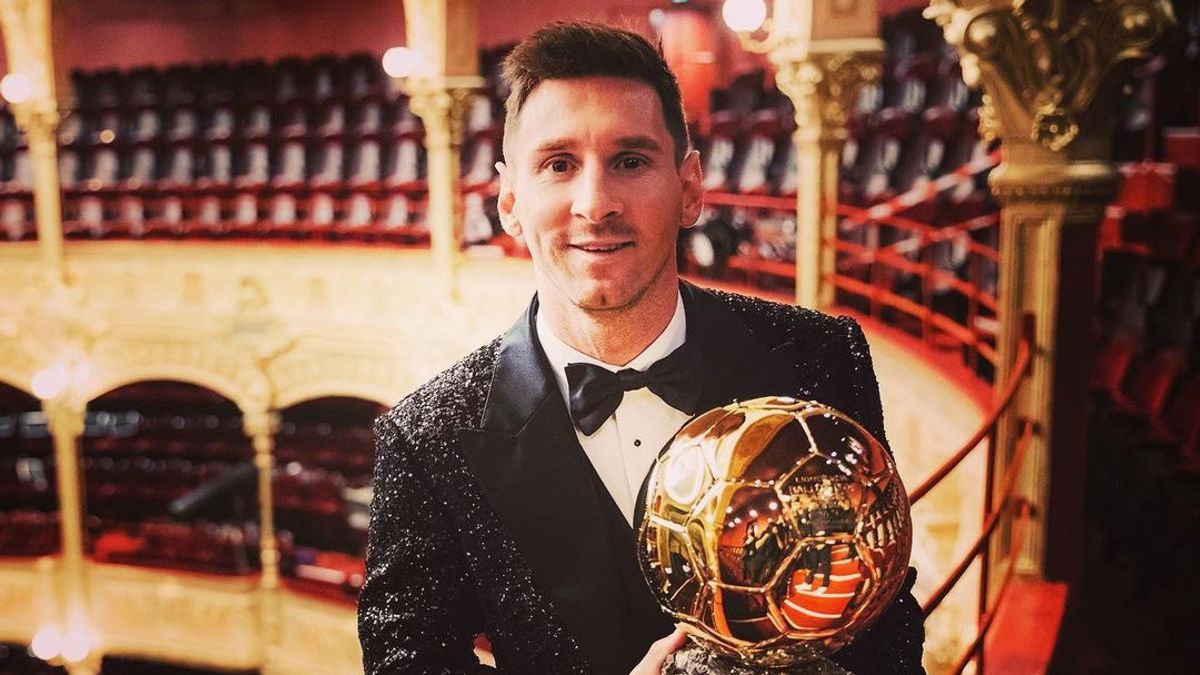JAKARTA – The new format for determining the winner of the Ballon d'Or award in football has been officially changed. This is inseparable from the controversial victory of Lionel Messi in 2021.
The Argentina international won the seventh Ballon d'Or of his career in November. He is now two trophies ahead of the most coveted award for all footballers from his rival, Cristiano Ronaldo.
Messi beat Bayern Munich's Robert Lewandowski and Chelsea midfielder Jorginho. La Pulga received the award after helping Barcelona win the Copa del Rey trophy and bringing Argentina to the Copa America trophy.
However, this victory caused controversy. Many consider Lewandowski more deserving of the title. Or at least the figure of Jorginho who shone with Chelsea.
It was the controversy that made France Football magazine as the licensee of the award change the format to determine the winner. There are four major changes made in this new format.
The changes will take effect for awards awarded this year. With these changes, Messi and Ronaldo's chances of winning the award are decreasing.
Here are the four points of change:
First, whereas in previous years the scoring was based on a player's performances in one calendar year (January–December) and had to look at the player's performance in two and a half seasons, now the scoring has been changed based on player performances in one season between August and July.
Second, the Ballon d'Or is now changing who can compile the short list. Ballon d'Or ambassador Didier Drogba and his selection of journalists close to the results of the previous year's edition will participate in selecting the short list of winners. The breakdown is 30 lists for men and 20 for youth players and goalkeepers.
Third, changes in the number of countries that may vote. If last year, representatives from 170 countries took part in the process, from now on only the top 100 countries in the FIFA rankings (top 50 for women's football) have the right to vote.
This means having an influence on Indonesia. Indonesia, which is outside of the top 100 countries, certainly does not have the right to vote to determine the winner.
Fourth, there is a change in the criteria. As this is an individual award, voters are instructed to focus on the player's individual performances rather than collective achievements. Players who have fair play and can be role models will also be considered in the selection.
The English, Chinese, Japanese, Arabic, and French versions are automatically generated by the AI. So there may still be inaccuracies in translating, please always see Indonesian as our main language. (system supported by DigitalSiber.id)












